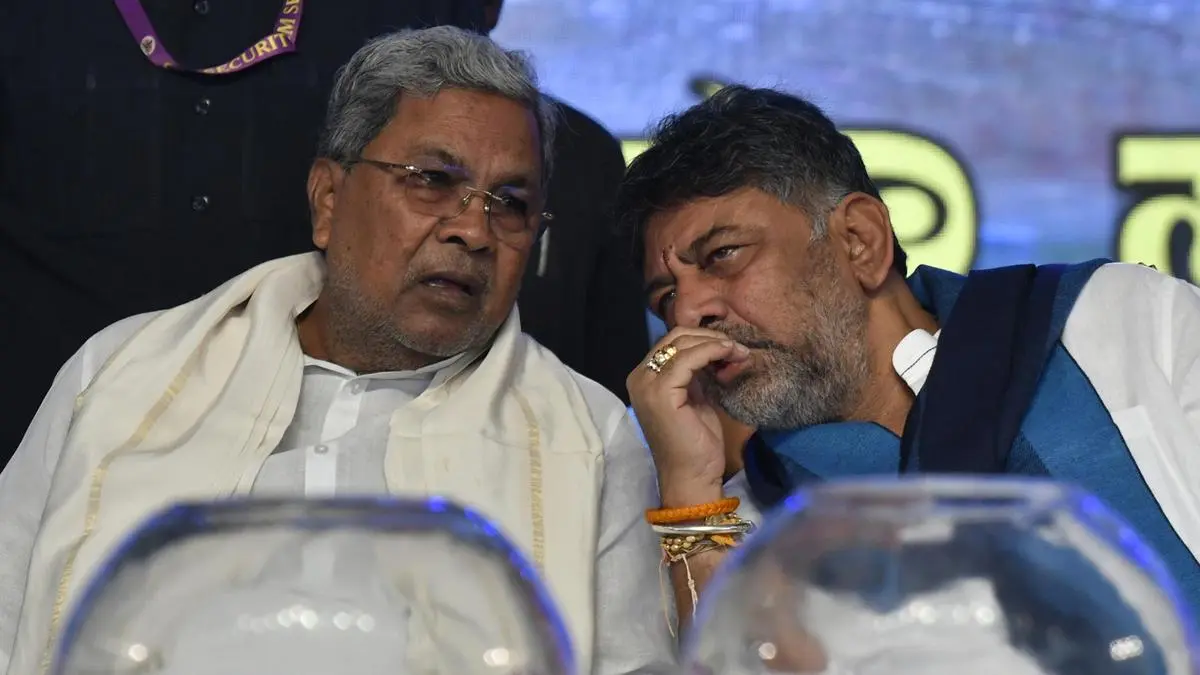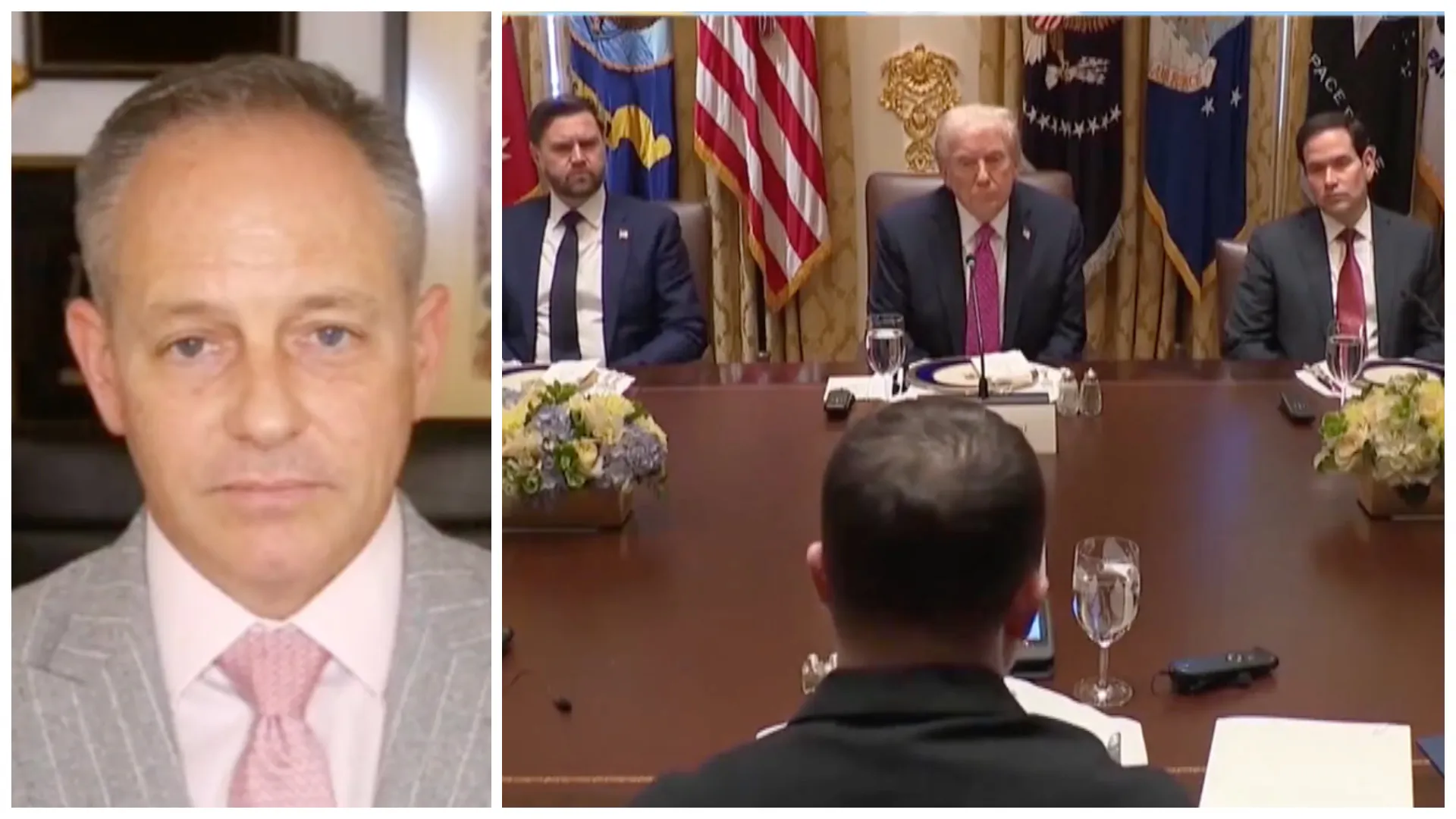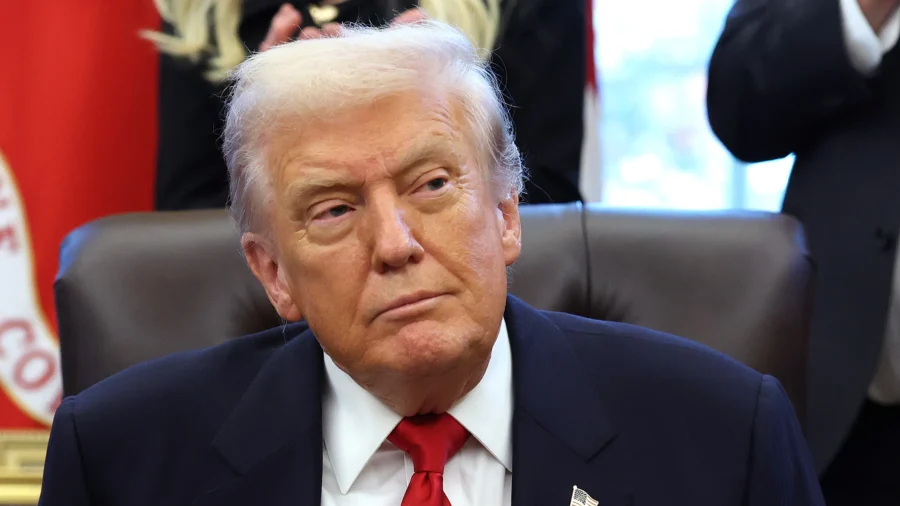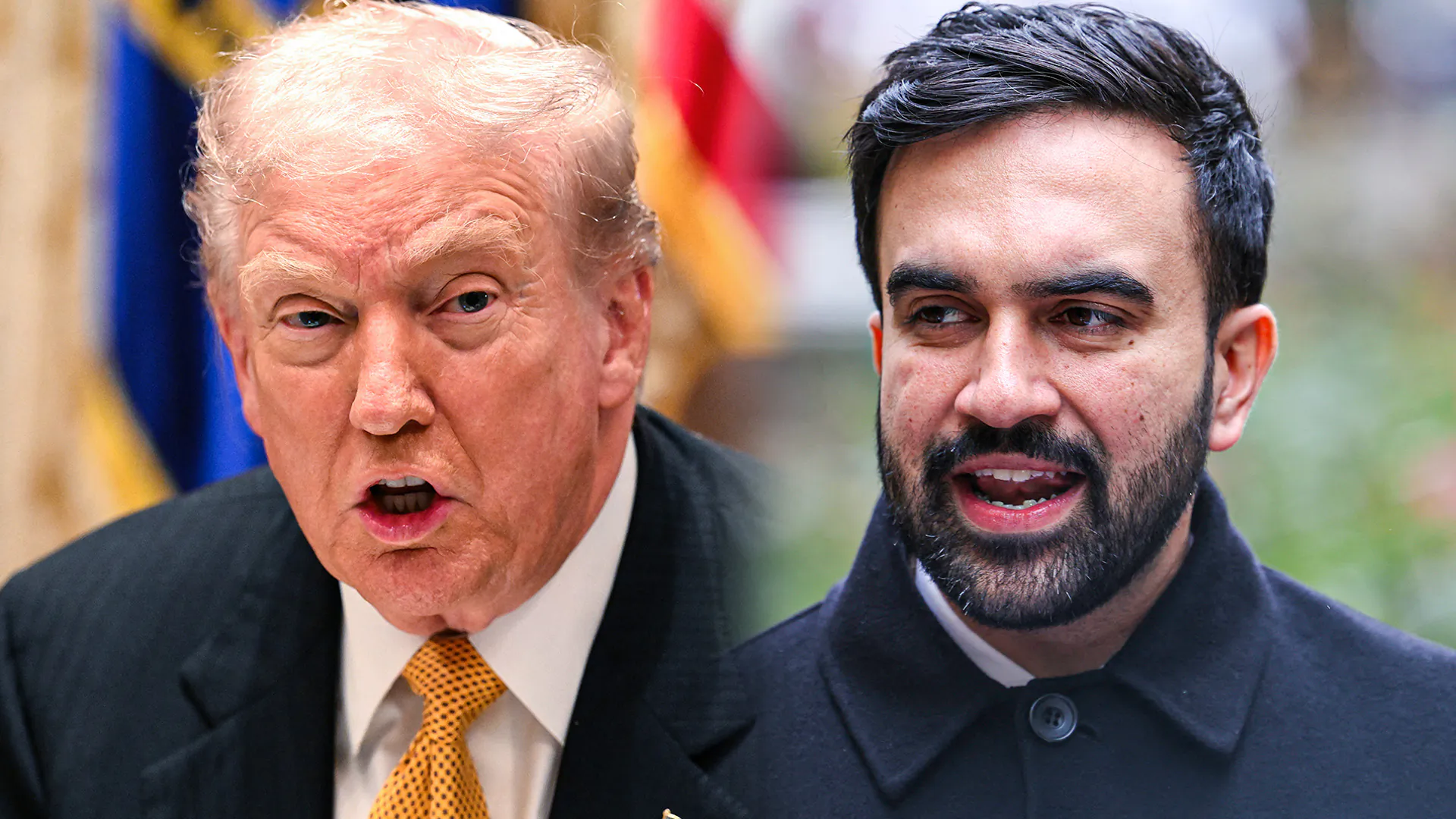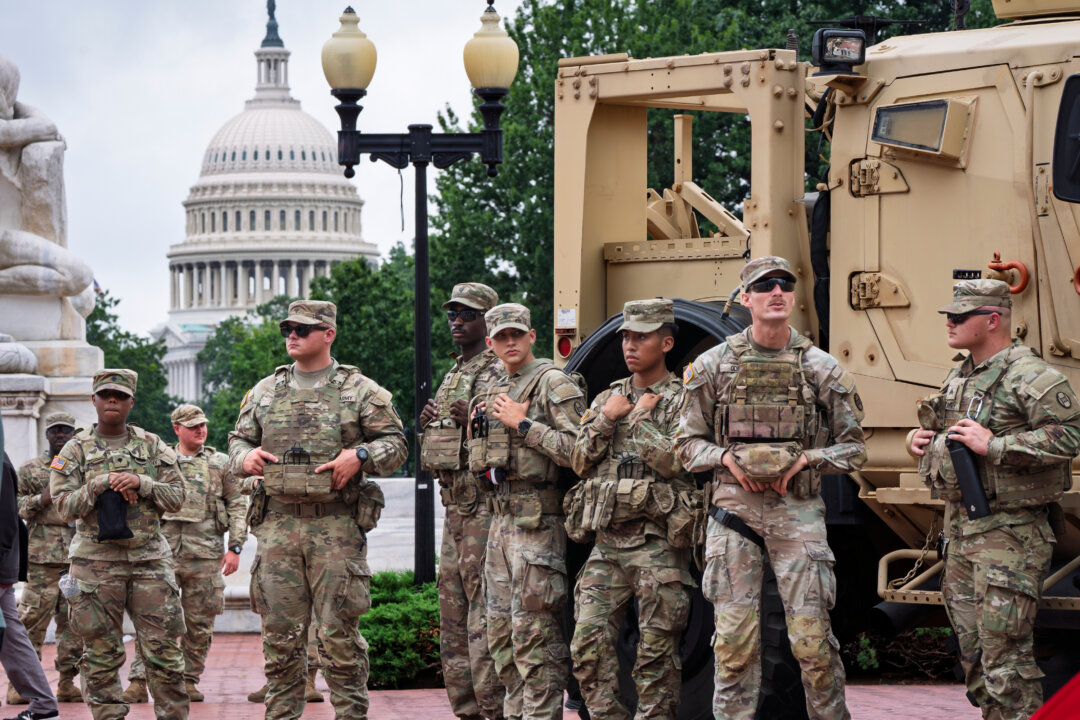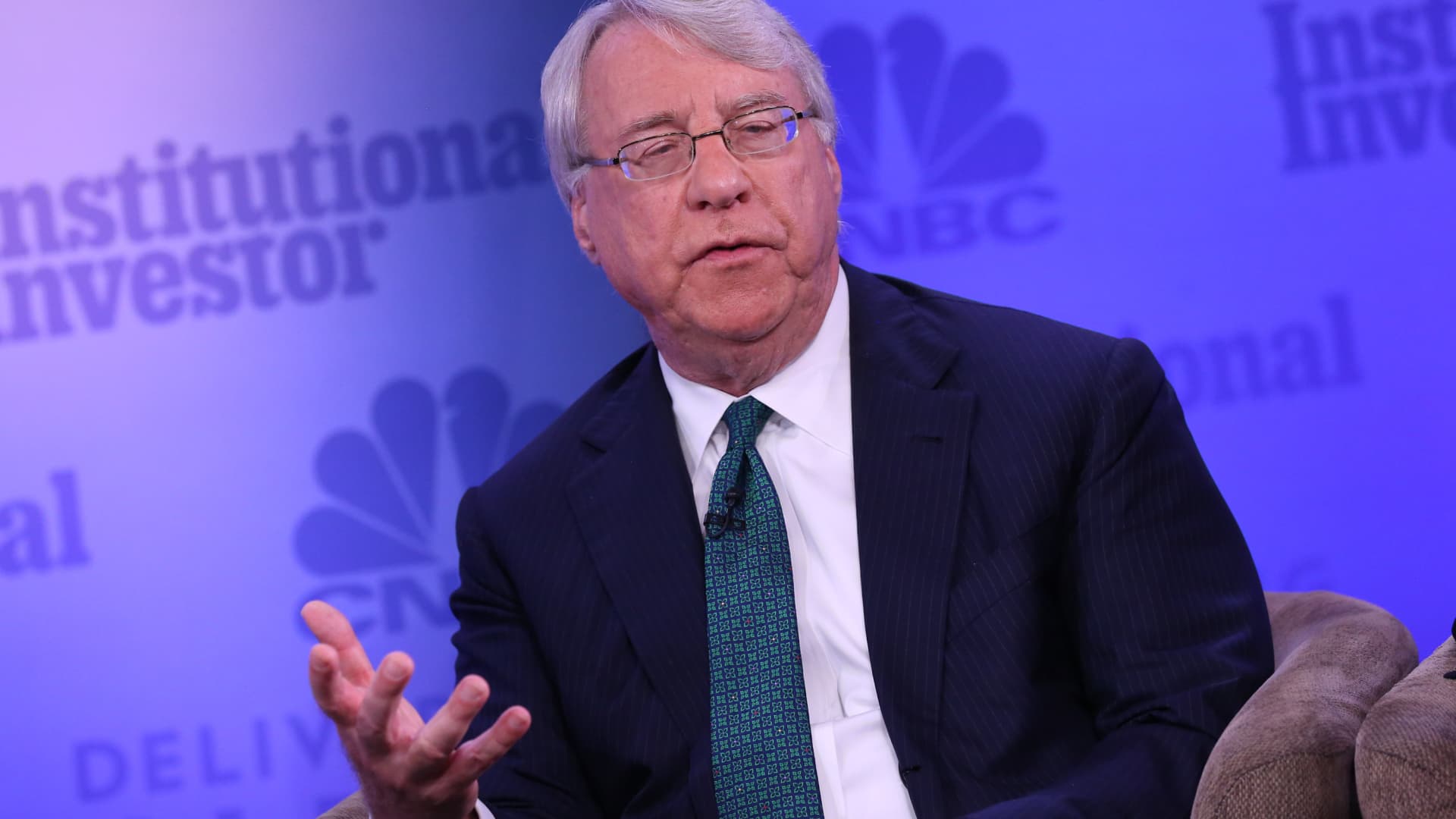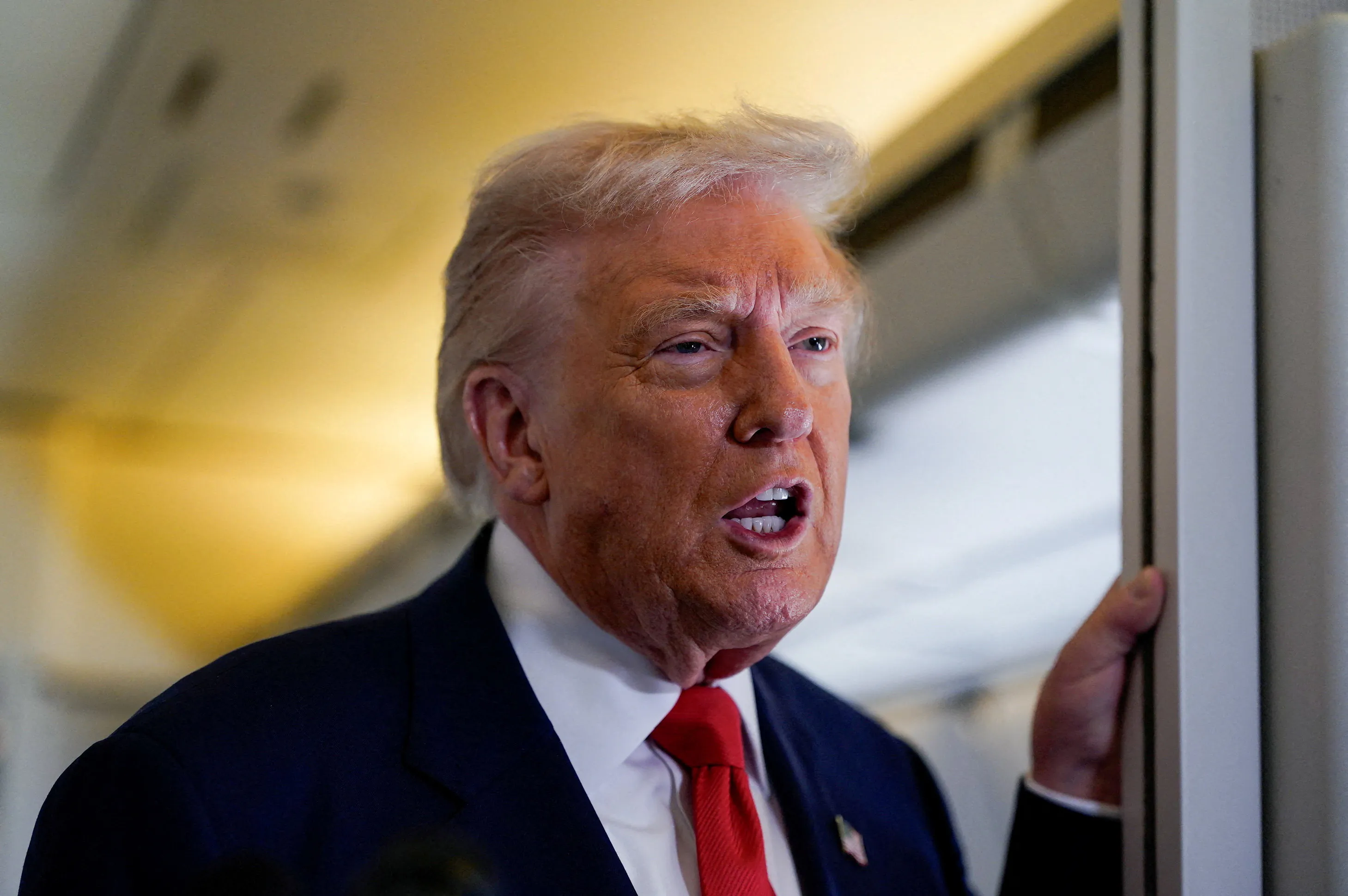UNHCR rapporteurs cry ‘human rights violations’ over India’s counter-terror operations after Pahalgam attack: How the UN agency echoed The Caravan to whitewash Islamic terrorism
Be it the Pahalgam attack or the Delhi car blast, whenever an Islamic terror attack is carried out in India, it has become ritualistic to cry Islamophobia when common people call out religious drivers of killing non-Muslims and villainising security forces as ‘human rights violators’ for acting against terrorist and their facilitators. In this vein, eight United Nations Special Rapporteurs issued a joint press statement expressing ‘concern’ over so-called human rights violations by Indian authorities in Jammu and Kashmir for their counter-terrorism measures after the Pahalgam attack. The independent human rights experts appointed by the UN Human Rights Council claimed to unequivocally condemn the Pakistan-backed Pahalgam terrorist attack and expressed condolences to the victims and the Indian government. “We unequivocally condemn the brutal terrorist attack on a tourist area and extend our condolences to the victims, their families, and the Government of India. However, all governments must respect international human rights law while combating terrorism,” the UNHRC experts said. However, they deemed India’s counter terrorism operations, including temporary media restrictions, internet shutdowns, and the blocking of 8,000 social media accounts, as ‘disproportionate’ and in violation of international human rights law. These measures are disproportionate restrictions on freedoms of expression, association and peaceful assembly,” they said. The joint statement further claims that in sweeping operations in response to the Pahalgam attack, Indian authorities arrested or detained over 2,800 people, including ‘journalists’ and ‘human rights defenders’. Many of those arrested were also booked under the Public Safety Act (PSA) or the stringent Unlawful Activities (Prevention) Act, “which permit prolonged detention without charge or trial and contain vague and overbroad definitions of terrorism.” It further claimed that detainees were held incommunicado, denied access to family and lawyers, tortured or ill-treated. Throwing weight behind ‘reports’, the UN rapporteurs also alleged there were suspicious deaths in custody, lynchings of suspected ‘militants’ or supporters, and “discriminatory targeting of Kashmiri and Muslim communities. The experts listed in the UN-OHCR statement are Ben Saul, Morris Tidball-Binz, Nazila Ghanea, Balakrishnan Rajagopal, Nicolas Levrat, Paula Gaviria, Mary Lawlor, Gabriella Citroni (Chair-Rapporteur), Grażyna Baranowska (Vice-Chair), Aua Baldé, Ana Lorena Delgadillo Pérez, Mohammed Al-Obaidi, and Alice Jill Edwards. Islamic terrorists killed Hindus for their faith, but UN experts worry more about Islamophobia Toeing the usual Islamo-leftist narrative of Muslim victimhood, the UN rapporteurs claimed that authorities arbitrarily demolished homes, businesses and properties of families linked to suspected terrorists without court orders or due process. They labelled such actions as “collective punishment”. The UN experts also lamented that many Kashmiri students were subjected to surveillance and ‘harassment’ following the terror attack. They claimed that universities requiring information about these students on the government’s directives amounted to ‘harassment’. Given the clear Islamic religious motivations of the Pakistan-sponsored Jihadis perpetrators of the Pahalgam attack to profile and kill only Hindu or other non-Muslim tourists, the social media discussions highlighted the religiosity of the attack. Many social media users had also pointed out that hiding behind the usual ‘terrorism has no religion’ trope will not help get to the root of Jihadi terrorism, let alone its eradication. However, the UN experts deemed it as ‘hate speech’ and ‘incitement to violence’ against Muslims, that also “inflamed by political figures in the ruling party.” UN rapporteurs linked anti-encroachment drives in Assam and Gujarat with post-Pahalgam counterterrorism crackdown Somehow, the UN rapporteurs also linked anti-illegal encroachment drives in Assam and Gujarat with the nationwide post-Pahalgam crackdown by authorities to argue that Muslims unrelated to terrorism were being targeted for sharing the same faith as the perpetrators of the Pahalgam attack. “Demolitions were reported in Gujarat and Assam, where thousands of Muslim homes, mosques, and businesses were destroyed,” the joint statement by the eight UN rapporteurs reads, adding that “Nearly 1,900 Muslims and Rohingya refugees were also expelled to Bangladesh and Myanmar, often without due process.” “Such expulsions violate the international obligation of non-refoulement, which prohibits returning individuals to countries where they risk persecution, arbitrary deprivation of life, torture, or other serious harm,” the UN rapporteurs added. While Assam and Gujarat have witnessed crackdowns on illegal encroachments, mostly involving Islamists encroaching government land and erecting Mazars o
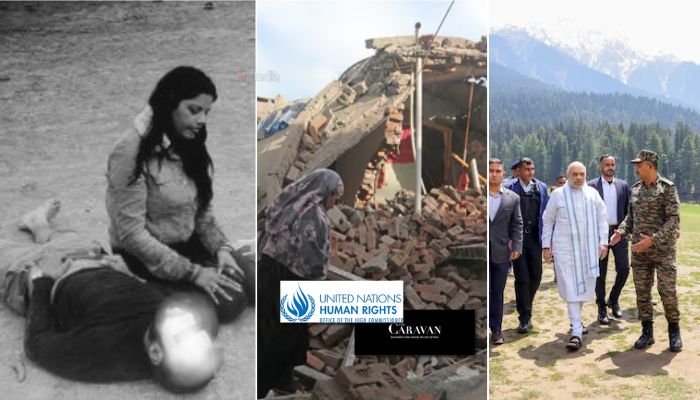


Be it the Pahalgam attack or the Delhi car blast, whenever an Islamic terror attack is carried out in India, it has become ritualistic to cry Islamophobia when common people call out religious drivers of killing non-Muslims and villainising security forces as ‘human rights violators’ for acting against terrorist and their facilitators. In this vein, eight United Nations Special Rapporteurs issued a joint press statement expressing ‘concern’ over so-called human rights violations by Indian authorities in Jammu and Kashmir for their counter-terrorism measures after the Pahalgam attack.
The independent human rights experts appointed by the UN Human Rights Council claimed to unequivocally condemn the Pakistan-backed Pahalgam terrorist attack and expressed condolences to the victims and the Indian government.
“We unequivocally condemn the brutal terrorist attack on a tourist area and extend our condolences to the victims, their families, and the Government of India. However, all governments must respect international human rights law while combating terrorism,” the UNHRC experts said.
However, they deemed India’s counter terrorism operations, including temporary media restrictions, internet shutdowns, and the blocking of 8,000 social media accounts, as ‘disproportionate’ and in violation of international human rights law.
These measures are disproportionate restrictions on freedoms of expression, association and peaceful assembly,” they said.
The joint statement further claims that in sweeping operations in response to the Pahalgam attack, Indian authorities arrested or detained over 2,800 people, including ‘journalists’ and ‘human rights defenders’. Many of those arrested were also booked under the Public Safety Act (PSA) or the stringent Unlawful Activities (Prevention) Act, “which permit prolonged detention without charge or trial and contain vague and overbroad definitions of terrorism.”
It further claimed that detainees were held incommunicado, denied access to family and lawyers, tortured or ill-treated. Throwing weight behind ‘reports’, the UN rapporteurs also alleged there were suspicious deaths in custody, lynchings of suspected ‘militants’ or supporters, and “discriminatory targeting of Kashmiri and Muslim communities.
The experts listed in the UN-OHCR statement are Ben Saul, Morris Tidball-Binz, Nazila Ghanea, Balakrishnan Rajagopal, Nicolas Levrat, Paula Gaviria, Mary Lawlor, Gabriella Citroni (Chair-Rapporteur), Grażyna Baranowska (Vice-Chair), Aua Baldé, Ana Lorena Delgadillo Pérez, Mohammed Al-Obaidi, and Alice Jill Edwards.
Islamic terrorists killed Hindus for their faith, but UN experts worry more about Islamophobia
Toeing the usual Islamo-leftist narrative of Muslim victimhood, the UN rapporteurs claimed that authorities arbitrarily demolished homes, businesses and properties of families linked to suspected terrorists without court orders or due process. They labelled such actions as “collective punishment”.
The UN experts also lamented that many Kashmiri students were subjected to surveillance and ‘harassment’ following the terror attack. They claimed that universities requiring information about these students on the government’s directives amounted to ‘harassment’.
Given the clear Islamic religious motivations of the Pakistan-sponsored Jihadis perpetrators of the Pahalgam attack to profile and kill only Hindu or other non-Muslim tourists, the social media discussions highlighted the religiosity of the attack. Many social media users had also pointed out that hiding behind the usual ‘terrorism has no religion’ trope will not help get to the root of Jihadi terrorism, let alone its eradication. However, the UN experts deemed it as ‘hate speech’ and ‘incitement to violence’ against Muslims, that also “inflamed by political figures in the ruling party.”

UN rapporteurs linked anti-encroachment drives in Assam and Gujarat with post-Pahalgam counterterrorism crackdown
Somehow, the UN rapporteurs also linked anti-illegal encroachment drives in Assam and Gujarat with the nationwide post-Pahalgam crackdown by authorities to argue that Muslims unrelated to terrorism were being targeted for sharing the same faith as the perpetrators of the Pahalgam attack.
“Demolitions were reported in Gujarat and Assam, where thousands of Muslim homes, mosques, and businesses were destroyed,” the joint statement by the eight UN rapporteurs reads, adding that “Nearly 1,900 Muslims and Rohingya refugees were also expelled to Bangladesh and Myanmar, often without due process.”
“Such expulsions violate the international obligation of non-refoulement, which prohibits returning individuals to countries where they risk persecution, arbitrary deprivation of life, torture, or other serious harm,” the UN rapporteurs added.

While Assam and Gujarat have witnessed crackdowns on illegal encroachments, mostly involving Islamists encroaching government land and erecting Mazars or dargahs there, and illegal Bangladeshi and Rohingya occupying land, these anti-encroachment drives have been going on for more than a year. Although unrelated, the only demolition drive in Gujarat that came just days after the Pahalgam attack was to remove illegal structures in and around Chandola Lake by the government, a hub of illegal Bangladeshis, that also after the Gujarat High Court gave clearance for the action.
In addition, the assertion that houses of innocent Kashmiri civilians were demolished is also false. Houses were demolished by the authorities, but not those of innocent civilians. The authorities razed down houses of only proven terrorists.
Terrorist Shahid Ahmed Kuttey’s Shopian residence, house of another active jihadi Zakir in Kulgam, house of Ahsan ul Haq Sheikh in Muran, Pulwama, who had also visited Pakistan in 2018 and infiltrated the valley earlier this year, house of Farooq Teewd,a who crossed into Pakistan in the early 90s and never returned, and houses of LeT jihadis Adil Hussain Thokar at Bijbehara, Anantnag, and Asif Sheikh at Tral, Pulwama, were demolished by the security forces using explosives. None of them were innocent or peace-loving ‘civilians’.
Although the efforts to detect, detain and deport illegal aliens gained renewed intensity after the Pahalgam attack, to dub these actions as some sort of unfair retribution against Muslims is an utterly dishonest observation reeking of the bias of UN rapporteurs.
Also, merely having an UNHCR card does not make the Rohingyas legitimate ‘refugees’ in India. Having a UNHCR refugee card does not give any legal status for illegal infiltrators in India, as the UNHCR card is not recognised by Indian law. Since Myanmar does not recognise Rohingyas as its citizens despite the reality being otherwise, there is little scope to follow ‘due process’ as per the expectations of the UN rapporteurs. India cannot permanently house the Rohingyas and allow them to alter the country’s demography.
It must also not be forgotten that the Rohingyas persecuted in Myanmar come to India via Bangladesh; they enter India for material benefits and no longer remain a persecuted group. India is, thus, not legally bound by national or any international law to provide refuge or safe haven to Rohingya illegals.
Regarding Bangladeshi Muslim illegals in India, they are not refugees but infiltrators. The illegal influx of Bangladeshi Muslims in India is not a new phenomenon. Bangladeshi Muslims are not persecuted in the Muslim majority nation. They enter India illegally for economic prospects and to indulge in criminal activities. OpIndia has highlighted many cases wherein it has been found that Bangladeshi and, in several cases, even Rohingyas obtain forged documents, including Aadhaar cards, and avail government scheme benefits meant only for legal Indian citizens. They have also been found to be involved in running criminal rackets.
Thus, detecting, detaining and deporting them is the only solution; international obligation to non-refoulement does not mean that Rohingyas should be granted eternal refuge or Indian citizenship.
UN rapporteurs call terror funding accused Irfan Mehraj and Khurram Parvez as ‘human rights defenders’, demand their ‘unconditional’ release
In their joint statement, the UN rapporteurs cried that ‘human rights defenders, Irfan Mehraj and Khurram Parvez, have been “arbitrarily detained for years under draconian laws.”
“We urge the immediate unconditional release of all individuals arbitrarily detained in Jammu and Kashmir,” the UN experts said.
In a video statement, one of the UN human rights experts, Mary Lowler, is heard heaping praises on Khurram Parvez and lauding him as an ‘excellent’ human rights defender.
The ‘experts’, however, did not mention that Mehraj and Parvez were not arrested for defending human rights. Irfan Mehraj of ‘Two Circles’ was not arrested for his ‘award-winning journalism’ but for alleged involvement in a terror funding case.

Mehraj was closely associated with ‘activist’ Khurram Parvez and a member of the Jammu and Kashmir Coalition of Civil Societies (JKCCS). The NIA had said that the JKCCS was funding terror activities in the valley and had also been in the propagation of the secessionist agenda in the Valley under the garb of protection of human rights. In a Facebook post from June 2020, Irfan Mehraj was seen in awe of controversial activist Khurram Parvez. “You keep inspiring us every day,” he wrote.
The UN ‘experts’ urged the Indian government to “bring its counter-terrorism laws and practices in line with international human rights obligations and independently investigate all alleged violations and ensure accountability.” They also urged the Indian and Pakistani governments to resolve their dispute over Jammu and Kashmir peacefully. Nowhere in the statement did the UN human rights experts condemn Pakistan or even name the Pakistani Islamic terror group Lashkar-e-Taiba (LeT), the offshoot of which was behind the Pahalgam attack.
Clearly, the UN experts want the “destructive cycle of cross-border violence” to end, but do not want to name the Pakistani perpetrators, facilitators and enablers of jihadist violence.
Caravan Magazine uses statement by UN rapporteurs to pat its own back over the propaganda it peddled months back
The Caravan magazine, notorious for peddling propaganda against Hindus and the Indian state, on 26th November, published an X post in which it mentioned the statement issued by the UN human rights experts and said that in June this year, it reported about the human rights violation-related claims that the UN experts have highlighted now.
“At least eight United Nations Special Rapporteurs on Monday expressed alarm, claiming that serious human rights violations were committed by Indian authorities in Kashmir following the 22 April 2025 deadly attack in Pahalgam. The Caravan had published a report in June 2025 on Custodial killings, detentions and demolitions haunt a mourning Kashmir. @jatinder_tur had reported, Demolishing the homes of alleged militants is a practice new to Kashmir, not like the detentions, disappearances and extrajudicial killings that its society had slowly, bitterly learnt to prepare for,” The Caravan wrote.
“It is a crude tactic, imported from the worst impulses of mainland Indian politics, and has been adopted across Kashmir after the Pahalgam attack. The only difference was that, in Kashmir, it was not the police or errant municipal corporation officials conducting the demolitions, but the army. And it was not bulldozers tearing down homes but military-grade explosives,” it added.

Contrary to the narrative pushed by The Caravan earlier and now by the UN rapporteurs, the security forces do not mindlessly arrest random Muslim individuals and torture them for sadistic pleasure or revenge against terror attacks. The National Investigation Agency, which took over the Pahalgam probe, arrested individuals based on concrete evidence, such as the two overground workers (OGWs) ,Bashir Ahmad Jothatd and Parvaiz Ahmad, in June this year for harbouring three Pakistani LeT-affiliated Islamic terrorists. A special NIA court extended its remand earlier in November, and there was no denial of legal access.
Specifically, The Caravan article written by Jatinder Kaur Tur mentions the case of three Kashmiri residents, Dilshada and Amina, who it claimed were added to the list of the state police’s watchlist of alleged OGWs over a decade ago. This came after Dilshada’s husband, Talib Lali, and Amina’s husband, Altaf Lali, were arrested by the security forces over allegations of being a financier of the outfit Hizbul Mujahideen.
In a tone humanising terror financing accused, The Caravan article says, “IT WAS SOMETHING the family could never seemingly live down. Twelve years ago, Talib Lali—Dilshada’s husband and the brother of Amina Begum and Altaf—had been arrested. Investigative agencies claimed that Talib was a major financier for the militant outfit Hizbul Mujahideen. Since then, he has spent more than a decade in Delhi’s Tihar Jail as the case drags on.”

The Caravan, however, did not elaborate much on the fact that Altaf Lali was a terror associate. He was killed in an encounter with the Jammu and Kashmir Police in Bandipora days after the Pahalgam attack, and two security forces were also injured. A search operation was ongoing when ‘militants’, as the mainstream media calls them, opened fire on the police and during this exchange, Altaf Lali was killed.
In addition, The Caravan also did not highlight that Talib Lali was merely accused of being a major financier of the Islamic terror group Hizbul Mujahideen. Killed in 2013 in an encounter with the police, he was the longest surviving terrorist in Kashmir and was the top commander of Hizbul Mujahideen. When a family is linked to two terrorists, especially a top Hizbul commander, security forces cannot help but be cautious.
This, however, is not the first time that The Caravan has attempted to malign the image of the Indian security forces. It earlier published a highly derogatory and propaganda-riddled article accusing the Indian Army of “torture and murder of civilians in a restive Jammu”. This propaganda piece too was authored by Jatinder Kaur Tur, and was taken down at the direction of the Ministry of Information and Broadcasting. The magazine has challenged MIB’s order in the court; a decision in this case is pending.
Notably, Jammu and Kashmir Police interrogated and detained over a thousand individuals in the initial phase of the probe; these actions, however, were not sweeping detain and torture operations but based on actionable intelligence and meant to disrupt active support networks aiding terrorists. These detentions were part of standard counter-terrorism procedures.
Also, not all those picked up are still under detention or are jailed. While the Islamo-leftist media cabal has routinely painted the UAPA and PSA as ‘draconian laws’, a dishonest epithet that the UN rapporteurs have now used in their recent statement, these laws have been upheld by courts in various cases.
Moreover, there is no truth to the claims of custodial killings of detainees. It must be recalled that the leftist media and even Srinagar MP Ruhullah Mehdi had claimed days after the Pahalgam attack that a ‘civilian’ named Imtiaz Ahmad Magray was picked up by the Army but his lifeless body reached his family. They left the liberal ecosystem, claiming that Magray was killed by the Indian Army as ‘collateral damage’. However, the 23-year-old Kulgam resident had confessed to aiding terrorists and a video of him deliberately jumping into the Vishwa River to end his life while leading Security Forces to a hideout.. Magray acted on his own and was not tortured or shot dead by the Army.
Besides, The Caravan’s assertion that the government’s decision to withhold the bodies of eliminated terrorists amounts to a human rights violation and contributes to alienation is also wrong and is sympathetic towards the jihadis who have only the purpose of killing kafirs.
Earlier, when dead bodies of slain terrorists were handed over to their families, huge crowds used to gather to make a spectacle of their funerals, paint the killed jihadis as ‘martyrs’, ‘heroes’ and ‘victims’, none of which they actually were.
Discontinuing the protocol of handing over the bodies of neutralised terrorists has contributed to significantly curbing the glorification of jihadi terrorism, slashed opportunities for local terror networks to lure in more recruits, and, most importantly, reduced incidents of stone-pelting against the security forces. And yet, The Caravan portrayed this preventive measure as punitive.
The claims of denial of dignity of the dead are also false, as even though the authorities do not hand over the dead bodies of killed terrorists, they are accorded proper religious burial in coordination with the slain terrorist’s family, local religious figure and district administration. If denying glamourised funerals to terrorists is denying decent burial, then terrorists do not deserve such a ‘decent’ burial.
However, it seems that the UN rapporteurs have taken a page from the playbook of The Caravan and other such terrorist-sympathising propaganda factories to push the agenda of Muslim victimhood, selectively framing the counterterrorism measures as ‘oppression’ while downplaying Jihadi terrorism.


